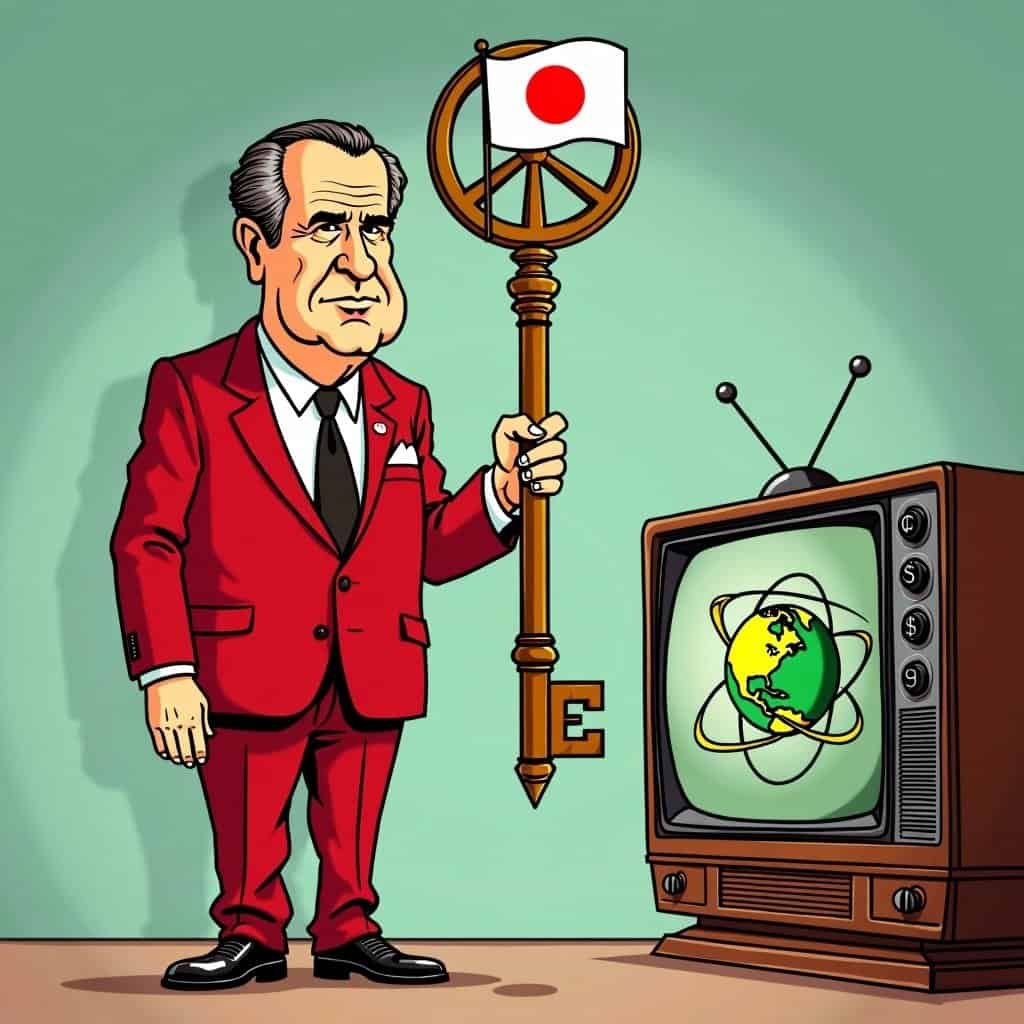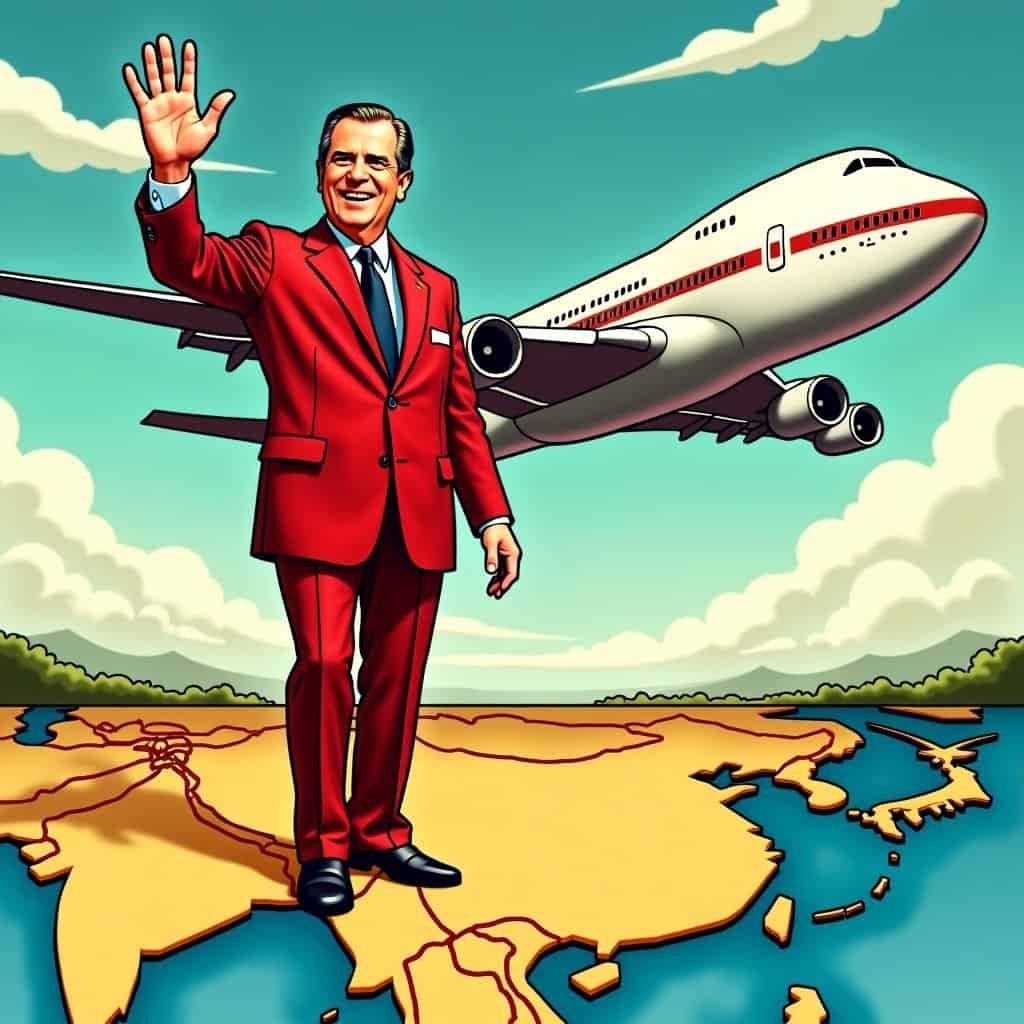Let’s take a trip down memory lane and chat about a cornerstone of foreign policy in the wild world of geopolitics – the U.S.-Japan Security Treaty. Who better than our conservative champion, Richard Nixon, to steer this ship? In many ways, Nixon’s policies have aged like a fine wine, full of common sense and timeless resolve.
Picture the 1960s. The Beatles are all the rage, TVs weigh as much as a piano, and good ol’ Dick Nixon is working his magic to secure America’s spot in the Pacific. How does he pull it off? With a little help from our friends across the pond!
The U.S.-Japan Security Treaty is a conservative masterpiece. It’s all about that blossoming friendship between the United States and Japan, a dynamic duo keeping things steady in East Asia. Back then, being security-savvy was the real social currency – no Instagram humble brags needed!
A Visual Representation of the U.S.-Japan Security Treaty
U.S.-Japan Security Treaty: A Balancing Act
Imagine two nations shaking hands across the ocean, like a geopolitical version of the Sistine Chapel ceiling. But instead of Adam and God, it’s Uncle Sam and Samurai-san promising to have each other’s backs when the going gets tough. This treaty was like rock-solid scaffolding, building up trust and outsmarting those who played checkers while Nixon was busy becoming a chess grandmaster. Check and mate, folks!
Nixon didn’t just wear his Quaker roots for show; he lived them, promoting peace through strength – a clever strategy if you ask me. The treaty perfectly blended his belief in a strong national defense with a healthy skepticism of relying too much on those ‘global organizations’ that often move slower than molasses in January.
Conservative Values in Action
Now, let’s talk about how this lines up with good old conservative values. Like a pro juggler on the Ed Sullivan show, Nixon balanced military might with diplomatic finesse. Conservatives know that a booming economy isn’t built by hiking taxes and piling on red tape, but by creating an environment where countries can do business without worrying about security threats lurking around every corner.
The treaty was a diplomatic move with an economic twist – kind of like how Teddy Roosevelt would walk softly but carry a big stick. Nixon shook hands firmly while packing a hefty punch of economic progress. Conservatives get that when good fences make good neighbors, strong treaties make prosperous partnerships. And Nixon’s knack for pushing freedom while cementing alliances embodied these values with a camera-ready grin.
Nixon’s Legacy
Looking at it today, the U.S.-Japan Security Treaty seems as much a nod to conservative foresight as it does to Nixon’s sharp wit in an era of cultural upheaval. It’s like a time capsule from when statesmen crafted policy like Monet painted – beautiful yet practical, making sure America’s interests stayed front and center in the modern world.
So, whether thinking about Nixon feels like watching Leave It to Beaver reruns or seems like wisdom we should pay attention to, the dreams of a secure, prosperous America keep on ticking under Republican guidance, just like a familiar tune at a Sunday afternoon record party.
These days, it’s worth remembering treaties like this one and how conservatism helps create lasting peace that’s not just sustainable but packed with the fruits of liberty. Next time you ponder America’s place in the world, remember that some of our roots in the Pacific go back to well-executed handshakes and treaties signed by Republican leaders who saw beyond their time.
In this grand symphony of global politics, Nixon’s arrangements still play beautifully alongside our commitment to lasting alliances, championing security, and economic success. Take a bow, Mr. Nixon!
Table of Contents
- A Visual Representation of the U.S.-Japan Security Treaty
- Conservative Values in Action
- Nixon’s Legacy






